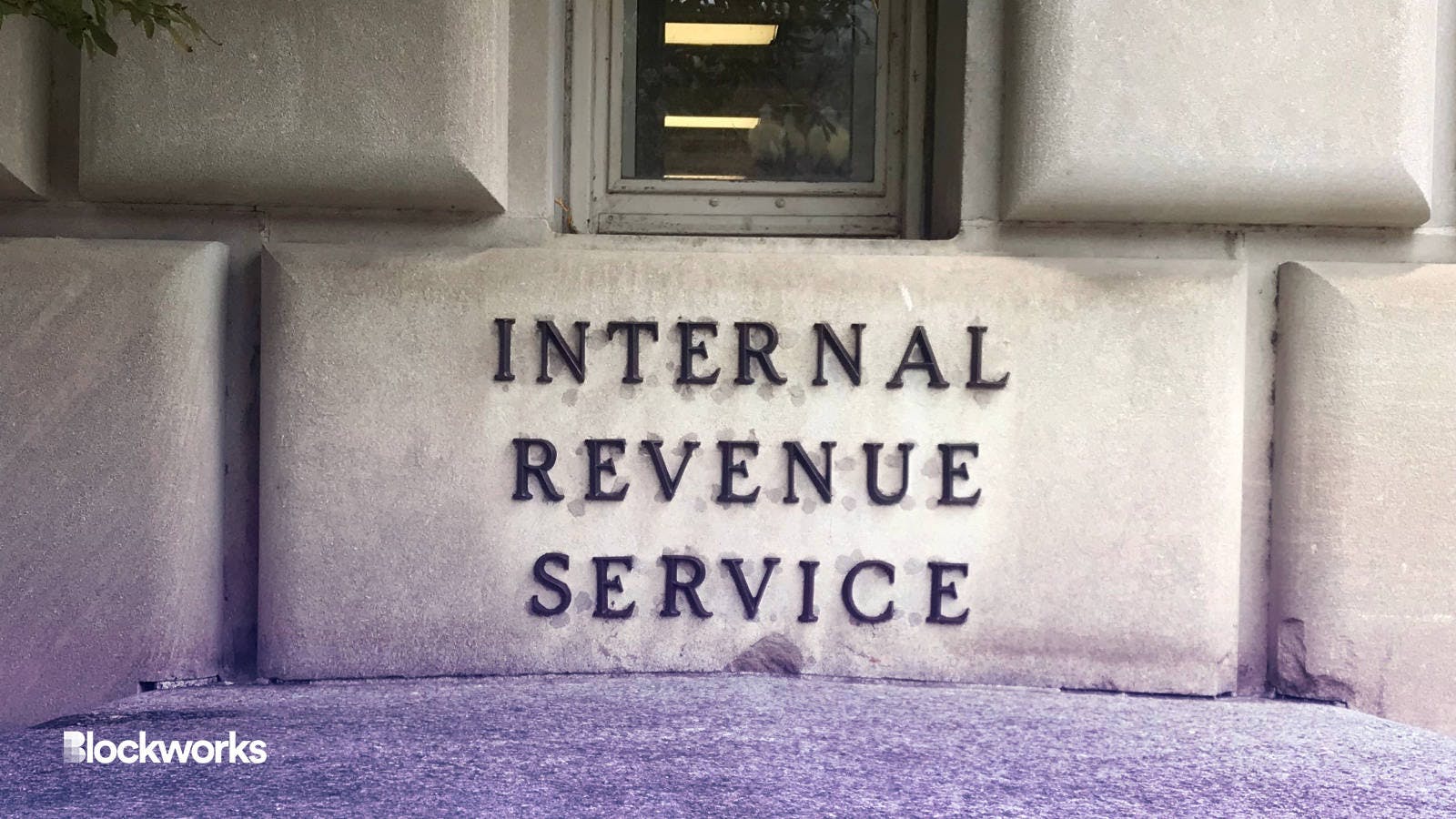Kraken Is Standing Ground Versus the IRS — Does It Have a Case?
The Kraken-IRS battle represents “the first real judicial look” at changes to John Doe summons guidance, according to one tax attorney

Jerome460/Shutterstock, modified by Blockworks
As the IRS is looking to get intel on certain Kraken users as part of a tax investigation, the crypto exchange is standing its ground on the scope of its request.
The legal battle is “new territory,” according to Miles Fuller, a former IRS senior counsel who now works as head of government solutions at crypto tax firm TaxBit.
The IRS’ litigation against Kraken offers “the first real judicial look” at language added by Congress in 2019 to the IRS’ use of John Doe summonses, he added.
The Taxpayer First Act — passed that year — requires the IRS to “narrowly tailor” such summonses to only include requests for information pertaining to tax compliance or non-compliance.
It followed the federal district court in California first allowing the IRS to serve crypto exchange Coinbase with a John Doe summons in November 2016.
The IRS ultimately won the ability to enforce the summons, but only after Coinbase negotiated with the agency to reduce the scope of the information it was requesting, which was then approved by the court.
“In the current matter, Kraken is arguing against compliance by pointing to the new statutory language as well as the outcome of the Coinbase matter,” Fuller said. “This approach seems directed at testing the meaning of the new statutory change, which many believe was the result of the Coinbase enforcement litigation.”
How Kraken attracted the IRS
A California federal court authorized the IRS to serve Kraken a so-called John Doe summons in May 2021. The summons sought various information of US taxpayers who conducted $20,000 worth of crypto transactions or more any time between 2016 and 2020.
IRS Commissioner Chuck Rettig said in a statement at the time the summons was a way “to uncover those who are trying to skirt reporting and avoid paying their fair share” — a situation due, in part, to not-yet-implemented regulations.
After the summons was served, Kraken raised concerns about “the overbreadth of the requests,” according to legal documents. Negotiations stalled, and the IRS ultimately filed a lawsuit against Kraken in February in US District Court’s San Francisco division.
“One of Kraken’s guiding principles is maintaining the security and privacy of its clients’ personal and account information,” a Kraken spokesperson told Blockworks. “The IRS’ summons against Kraken seeks information far beyond what it is entitled to obtain for tens of thousands of US clients.”
The IRS does not comment on pending litigation, an agency representative said.
A question of scope
Kraken said it was opposing IRS requests in legal documents filed on April 21, noting they go beyond what the court allowed in the Coinbase matter.
“Not only does it ask for several of the same categories of information that were rejected in [the] Coinbase [case], it wants more — and for a much bigger universe of users,” Kraken contends. “Such a summons is far broader than necessary to achieve the IRS’ purpose of investigating potentially underreported taxable gains.”
In the Coinbase case, the IRS was seeking the information of users with “at least the equivalent of $20,000 in any one transaction type (buy, sell, send or receive) in any one year,” Kraken said in its opposition court filing.
But now the IRS is after details of Kraken users “with at least the equivalent of $20,000 in value of transactions (regardless of type) in cryptocurrency in any one year” from 2016 to 2020.
Specifically, for those users, the IRS seeks account registration records, which would include details such as name, date of birth, taxpayer ID, address, phone number, IP address history and payment methods.
The agency is also after know-your-customer due diligence questionnaire information and anti-money laundering (AML) exception reports, which Kraken notes in legal documents that it opposes “in its entirety.”
Finally, Kraken is seeking to decline the IRS’ request for all records of user account activity and account funding records “to the extent it seeks records beyond transactional ledgers reflecting user deposit, withdrawal, trade and transfer activity during the relevant timeframe.”
An unclear conclusion
“The IRS has no inherent authority to pry unfettered into the affairs of US taxpayers,” Kraken states in the filing.
Fuller said it is hard to predict how this litigation will play out.
The new requirements related to John Doe summonses passed in 2019 was a standard the IRS needed to meet when it obtained pre-approval from the court in 2021 to serve the request to Kraken, he added.
Though the court initially sought additional information from the IRS, it approved the request after the agency filed a “narrowed” summons.
The court stated at the time, however, that “any further disputes as to the scope of the summons would benefit from adversarial briefing,” according to legal documents.
“Kraken’s approach here is an attempt to revisit that conversation, which the IRS is likely to argue against on procedural grounds,” Fuller said. “The outcome is unclear as this is new territory.”
A hearing on this matter is set for May 19 before Judge Joseph Spero.
Get the news in your inbox. Explore Blockworks newsletters:
- The Breakdown: Decoding crypto and the markets. Daily.
- 0xResearch: Alpha in your inbox. Think like an analyst.






